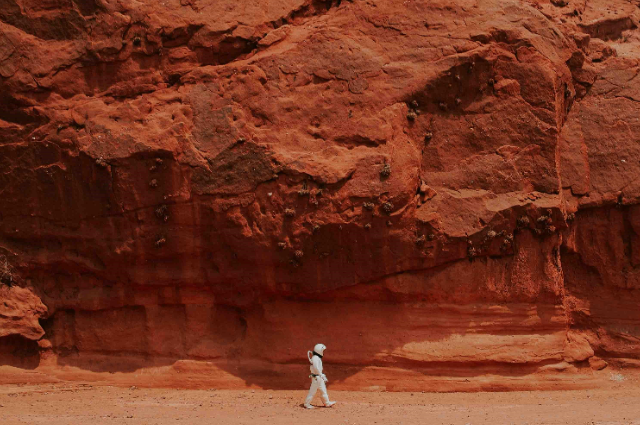
Photo by Nicolas Lobos on Unsplash / Representative Image
Despite Elon Musk's extravagant dream of colonizing and living on Mars, all life on Earth is struggling to protect itself from the massive amount of plastic pollution. The footage released by photographer Caroline Power from the expansive plastic floating across the waters of the Caribbean was catastrophic and has sent shock waves around the world.
The technological invasion has blinded mankind to an extent of declining immunity towards the fact that we have ceased to care for the environment and planet we dwell on. Plastic contamination is an alarming concern not only for developing but developed nations too, and now it has become a global cataclysm. Since the emergence of the plastic industry in 1950, statistics indicate that the global manufacturing of plastic has surged from 2 million tons to 380 million tons in 2015. And over the last 70 years, plastic production has amounted to 8.3 billion tons.
We aren't naïve to the fact that 'Plastic', though durable, is not easily biodegradable and could take thousands of years to decompose. The chemical composition of plastic is made up of long polymeric chains of carbon molecules. Therefore, it makes the degradation hazardous, leading to further breakdown of plastic into nano- and micro-particles. These particles, which are indigestible and toxic, upon ingestion by the sea planktons, turtles, fishes, and other aquatic animals cause them to die or become damaged. The plastic debris not only clogs the drains, but the lasting impact remains on the marine life that has become endangered and is on the verge of extinction.
Apart from marine disruption, studies show that the polymer is powerful enough to cause land and air contamination. The toxins released by plastic accumulation can cause 'fracking' and create underground cavities that collapse into sinkholes, thus increasing pressure on the rock formations while destabilizing them to cause earthquakes, not even in the earthquake-prone areas. Also, ways to get rid of plastic by burning are a hundred times as hazardous as its resistance to degradability. The dioxins emitted in the atmosphere by the burning of plastic can be poisonous to humans and animals, causing severe health complications.
The only way to get rid of this nasty compound is to 'recycle and reuse' or, if it has to be unconventional, 'get it dumped on Mars'. It could sound bizarre and an opulent plan. But then, if Elon Musk dreams to establish a colony on Mars, one can dream to make our very planet 'Earth' more livable. The horrendous plastic pollution to which the world has succumbed can make one paranoid enough to think in a way as such!
Astronomical studies have indicated atmospheric proximities and similarities on Mars to that of Earth, with a vague possibility of habitation. There has been no evidence of life on the cold planet, as per astrobiology reports. Earth, the only hospitable planet in the universe, which has been home to billions of people, is on high alert due to the prevalent environmental conditions. The owner of 'SpaceX' has proposed the development of infrastructure for Mars transportation and subsequent colonization, and as per reports, sending 12 astronauts to Mars will cost an estimate of $10 billion per person. Also, considering the Martian atmosphere, which constitutes 95% of carbon dioxide, to make it breathable to the release of oxygen, terraforming the planet would take around 100,000 years.
Wouldn't it be sagacious enough to think about potential ways to invest so much time and money into transforming the environmental conditions on Earth? Recently, an intriguing article in 'Forbes' highlighted how co-opting plastic would effectively help the environment. Few start-ups are working on repurposing plastic waste and finding innovative ways to curb the effects of this compound. Can't billions be invested to facilitate such initiatives and environmentally friendly projects rather than launching spacecraft on alien lands?
Mr. Musk, your unconventional and affluent ambition to establish a colony on Mars offers the curiosity and thrill of exploration, though it remains far away from any advantage to the billions of species residing on Earth!
